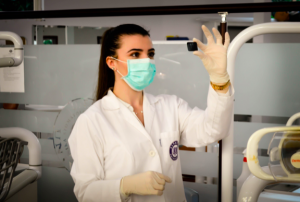Healthcare and medical applications (apps), and mobile devices are being used by healthcare professionals in settings and ways never imagined possible. Both have transformed many aspects of practicing healthcare, assisting all types of professionals with tasks such as health information management; health record maintenance and access; consulting with other professionals; information gathering; patient management and monitoring; clinical decision-making; and medical continuing education.
They are used in all types of facilities and professions, including medical clinics, physical therapy offices, hospitals, medical schools, dental offices, and surgery centers. The growing trend of using healthcare apps will only increase in 2020.
First to happen was the emergence of mobile devices. As they became more and more sophisticated, people in many professions began to use them as a routine part of their work; and healthcare was no exception. While some people were skeptical at first, particularly in the healthcare industry, many now use smartphones and/or tablets for what used to be accomplished via a matrix of pagers, cameras, flip phones, desktop computers, and yes, faxes and letters. Not only are smartphones and tablets small and easily accessible, the capabilities in just one device are staggering. They allow users to search the web, have easy access to high-quality cameras, provide video conferencing, and allow access to medical databases, to name a few of their capabilities.
Soon after mobile devices, apps entered the mix. Like in other industries, apps specific to the healthcare industry are convenient, user-friendly, customizable, and often allow work to be completed offline, which is not possible when using a website. The convenience and user-friendly factors are especially key. Mobile apps load content faster, provide a better user experience, and are easier to use. Apps have functionality, such as push notifications, that increases their convenience and usefulness as well. Users easily know when updates have been released or special features have been added to their favorite apps. They can also set reminders for themselves within the app, which can help with time management, patient follow-up, and other related tasks.
Additionally, apps can be customized. This feature is quite convenient, as many apps used by healthcare professionals are used very regularly. As such, it is quite helpful to be able to organize the information you see and how you see it. Apps typically allow users to set preferences, create personal accounts, and keep vital information front and center, often on a feature known as a “dashboard” or summary screen.
Lastly, being able to work offline can be exceptionally helpful. As apps are installed on a mobile device, they can keep providing access to content and features even without an internet connection. This capability is helpful in many settings whether in a hospital in the middle of a city, or out in “the field”. Sometimes, for example, internet reception is compromised in large buildings, like hospitals, which can prove problematic. Similarly, field or remote healthcare facilities, sometimes don’t have internet or have internet services that are unreliable. In both of these situations, apps are not only useful but at times vital, to delivering healthcare services.

Without a doubt, healthcare is one of the industries profoundly affected by the introduction of mobile devices and apps. A study done in 2012, known as the Manhattan Research/Physician Channel Adoption Study, found that doctor’s ownership and use of mobile devices was prevalent even in 2012, with 87% using a “smart” device at least “some of the time” in their workplace. This study went on to identify how physicians were using their mobile devices as well.
The study found that search was the most popular activity, with watching web videos for professional purposes, accessing apps or the web for clinical purposes, accessing patient information, and communication relating to patient care rounding out the top five activities. While this particular study didn’t address the entire landscape of healthcare, only physicians, a number of subsequent studies have looked at a broader range of disciplines. They show that device use has increased among physicians to 93%, and usage among healthcare professionals, in general, is hovering in the 95% range as of 2019.
Additionally, more recent studies have indicated people in healthcare are using mobile devices and apps in increasingly diverse ways as they become more numerous and sophisticated.
One major motivation driving the increase in the use of mobile devices, and apps, in particular, has been the need for better communication and easily accessible information resources at the point of care.
More specifically, providers need:
- Communication and consulting — phone calls, video conferencing, text, and email
- Administration and organization of patient care
- Health records maintenance and access — electronic health records and medical records
- Clinical decision systems and medical education – disease diagnosis aids, medical calculators, textbooks, guidelines, medical articles, drug references
- Reference and information gathering — diagnostic information, lab results, as well as search
To meet these needs, very specific medical apps have been created. There are apps for electronic prescribing, diagnosis and treatment, practice management, coding and billing, and continuing education. Amazingly, there are even mobile apps that can simulate surgical procedures, monitor pacemaker activity, and conduct simple medical exams, such as hearing or vision tests. My own father, for example, has a pacemaker and on several occasions, his physician has looked at his pacemaker activity via an app. This has not only put my father’s mind at ease but has allowed him to avoid an unnecessary trip to the physician’s office or the emergency room.



